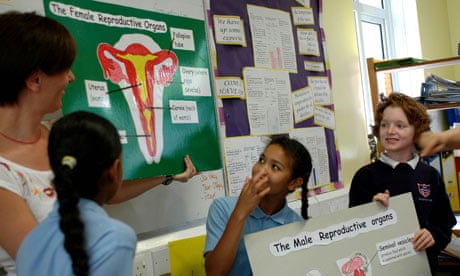No one watching the news in the past few weeks can fail to be distressed by the way vulnerable girls in Rochdale were treated by professionals whose job it was to protect them, let alone the men who repeatedly abused them. The unfolding story of how Jimmy Savile is alleged to have sexually assaulted numerous girls is equally disturbing – not least because Savile appears to have acted with impunity, despite the number of people who seemingly knew or directly witnessed abuse.
We know that men who commit this kind of abuse target women and girls they think are vulnerable, whether through age or other circumstance. They are adept at manipulating their victims and covering up their crimes from the authorities. We also know that harmful attitudes and behaviours are developed at a young age and there is growing evidence about the impact of pornography on young men's attitudes towards women. So schools have a critical role to play in keeping children safe by talking to them about issues such as sexual consent and how to hear it, what sexual coercion and exploitation is, helping shape healthy relationships and respect for one another. It is also vital to ensure that young people know they can talk to a trusted adult about these issues, and know where they can get support if they are being abused.
One of the saddest scenes in the Jimmy Savile documentary this week showed one victim saying that she knew she had to "give something back" after a nice day out. We should ensure that every young person knows they are valuable and have rights. This makes Labour's pledge at its annual conference this week to make sex and relationships education (SRE) statutory in order to tackle abuse of women and girls very timely. At present, only the biological aspects of sex education are compulsory.
We cannot bury our head in the sand about the scale of the problem. Violence against young women and girls (VAWG) is widespread, it occurs in every town, city and rural area in the UK and is committed by boyfriends, friends as well as adults. NSPCC research shows that one in three teenage girls experiences sexual violence from a partner, and that "sexting", or sharing sexual images between friends, is linked to coercion, harassment and abuse. Our own research found that one in three 16-18 year old girls say they experienced "groping" or other unwanted sexual touching at school. Behaviour that would be banned in the workplace, or even prosecuted, routinely goes unchallenged there.
Some problems are particularly hidden. It is estimated that over 20,000 girls in England and Wales are at risk of experiencing female genital mutilation (FGM) every year, and the Forced Marriage Unit deals with about 1,500 cases of forced marriage every year. The impact of abuse on girls and young women is very damaging in terms of physical and emotional harm, as well as impact on education and future prospects but many teachers feel they do not have the knowledge or skills to deal adequately with these issues. Alongside SRE, we want ongoing teacher training so that teachers have the confidence to deal with all forms of violence. They need to be able to spot abuse so that the warning signs in the Rochdale case are never again ignored, and respond to disclosures appropriately.
Our new campaign, Schools Safe 4 Girls, asks parents, students and others to talk to their local schools to ask them how they are dealing with these issues. Do child protection policies adequately address sexual exploitation and female genital mutilation for example? Is sexual harassment and teen relationship abuse addressed in bullying and behaviour policies?
The Department for Education (DfE) is the weak link in all of this. The Home Office leads the VAWG strategy and has produced an ongoing teenage relationship abuse campaign. David Cameron is pushing the agenda to tackle sexualisation. But the key department with responsibility for children, DfE, closed its expert group at the height of the sexual exploitation scandals and has no identifiable lead on VAWG (just think about that – even now, after Rochdale).
At the time of writing, there has been no response from the coalition government and so the question is, with the Conservative party conference opening on 7 October, how will Michael Gove respond?
